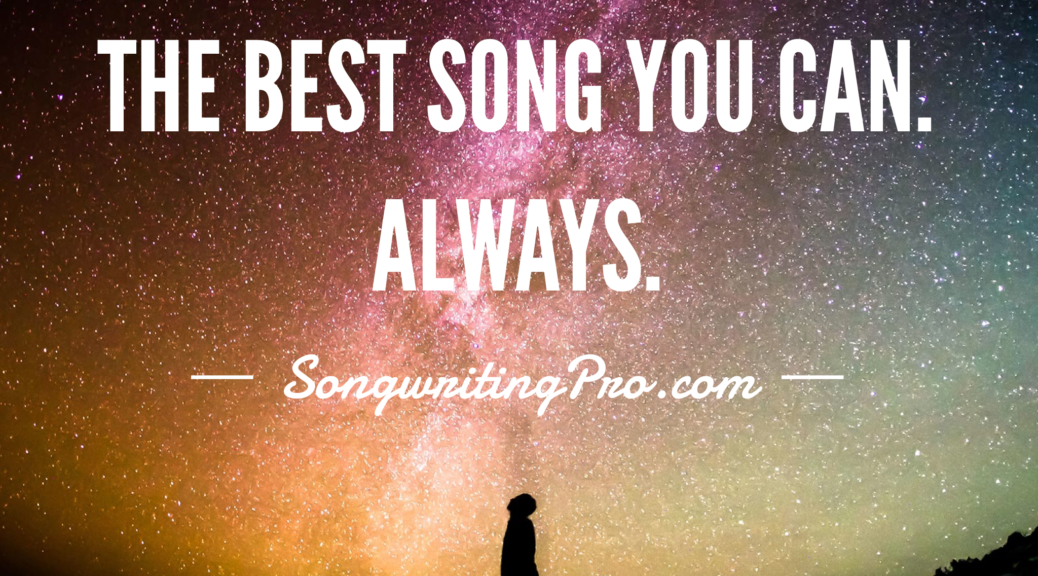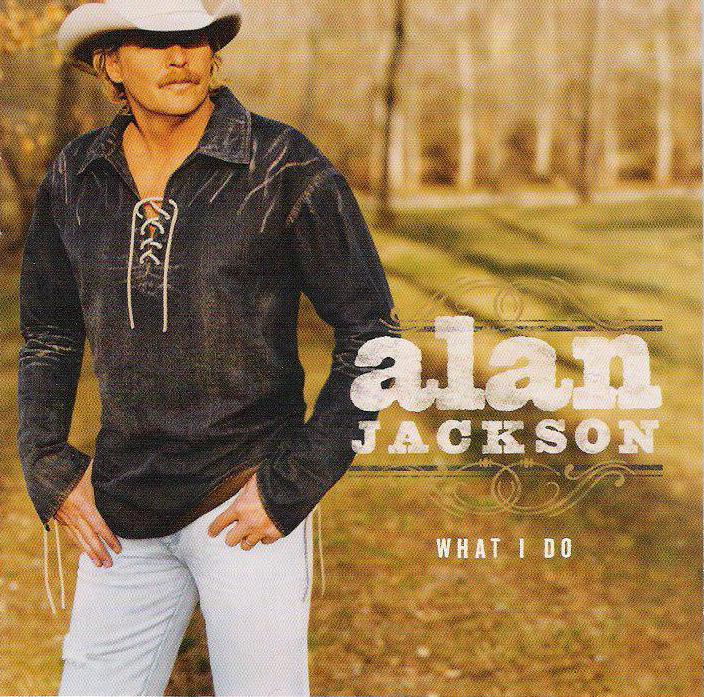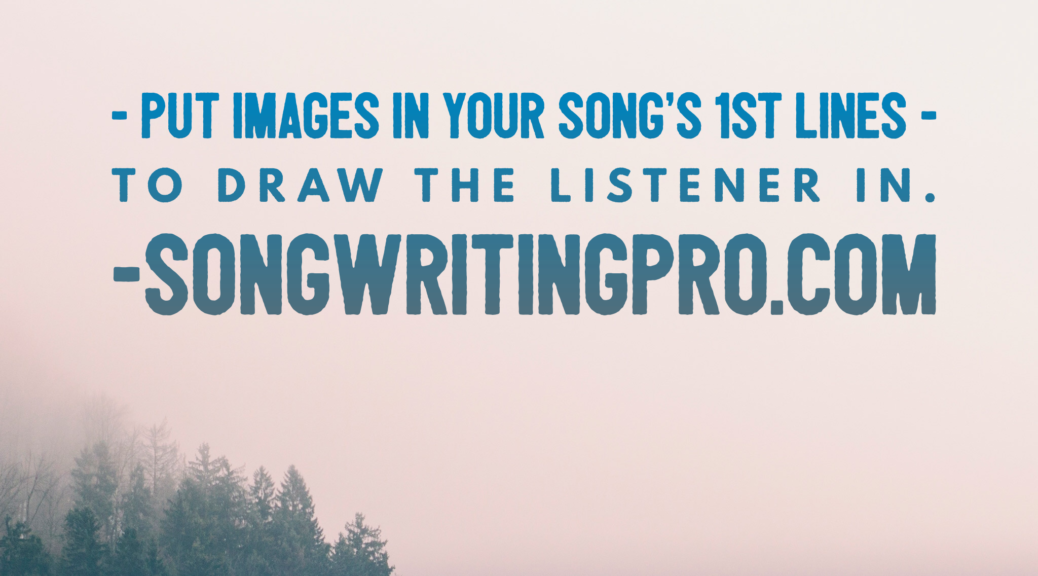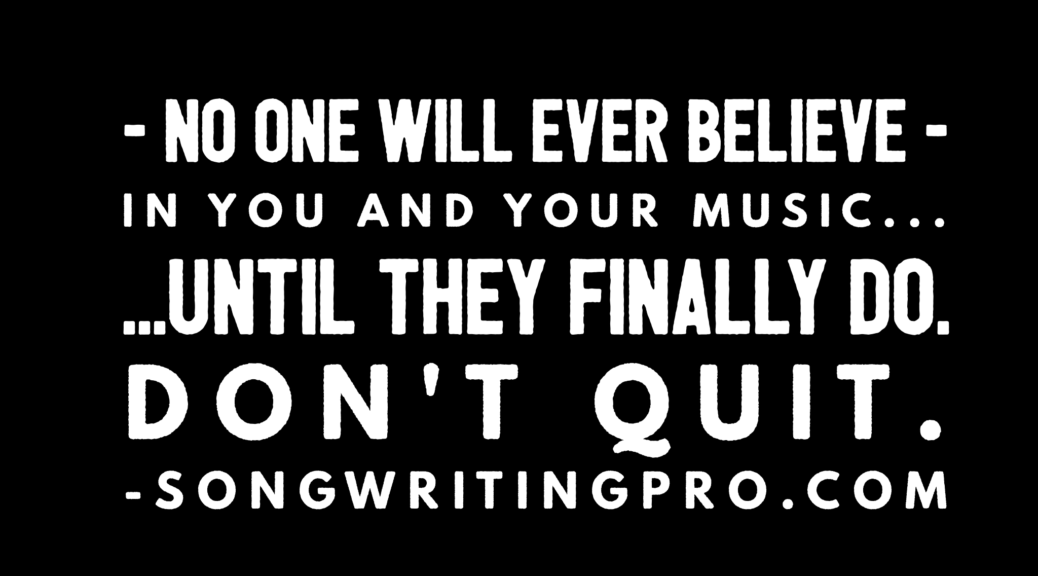
Are you sitting on your A-list song ideas, waiting for someday when you might get in the room with a hit songwriter or an artist?
Are you intentionally NOT writing these titles/ideas with your current cowriters because they’re unknown, unproven, or don’t have publishing deals?
That can be tempting. After all, you don’t want to “waste” your brilliant idea with anyone less than a hit songwriter or an artist. It’s tempting. But it’s also a mistake.
Read on if you want more songwriting success. ________________________________
To BE a pro, you need to THINK like a pro, and this FREE ebook will help transform your thinking, your songwriting, and your success. Get it today!
_________________________________
Here are four reasons you should NOT save your best ideas for “someday.” This is why you should bring your best stuff to EVERY cowrite.
1. Today’s unknown cowriter might be tomorrow’s hit writer.
Erin Enderlin was definitely higher up the Nashville ladder than I as when we started writing together (she still is, by the way). But back then, she was still a college student with no cuts to her credit. It’s a good thing I decided to pitch her the idea of “Monday Morning Church” instead of waiting till “someday when I get to Nashville and get to write with a hit songwriter.” ‘Cuz you know what? Erin WAS a hit songwriter. And so was I. It just so happened that we’d write our first hit… with each other. If an unknown writer is talented and hardworking, don’t hold back your best stuff. I’m certainly glad I didn’t.
2. Your best work creates better opportunities.
Simply put, your B-list work isn’t going to open A-list doors. Always bring your best. And as your best gets better, you’ll start to get noticed by folks higher up the ladder. If nothing else, think of your best stuff as bait for better cowrites. Here’s an example. You’re a lyricist, but you’ve only written with “B-list” melody people. Opportunity might happen when a publisher says, “Wow- what a great lyric and idea. Let me get you with some of my melody writers.”
3. There’s more where that came from.
If you keep writing, you’ll have more ideas. You’ll get better ideas. You’ll write better grooves, better guitar licks. Your creativity is a renewable resource. Trust that your current “best stuff” is not the only “best stuff” you’ll ever have.
4. The clock is ticking.
For one thing, your current best stuff might not even be relevant in a year or two. The market may change. Trends may shift. Strike now, while the iron’s hot. Also, you are (or at least, you should be) growing as a songwriter. Most of your A-list stuff today will become your B-list stuff tomorrow. But the clock slows down for really good work. A great song stands the test of time, and you can only write one if you’re writing the very best you can, not holding back for “someday.” So do your best work as often as you can.
Does this mean that EVERY best idea is right for EVERY cowriter? No. But the point is that you want to do your very best work, regardless of who else is in the room. Your songwriting skill is like a sport- you play like you practice. If you don’t make it a habit to always do your best (acting like some cowrites are just “practice”), your best may not be there when you need it- when you finally do get in the room with that hit songwriter or artist.
What about you? Have you held back on presenting your best stuff to cowriters. How’d that work out? Have you presented your best stuff to an unproven cowriter only to be happily surprised by the results? I’d love to hear from you. Please leave a comment.
Also, if you’re looking for an opportunity to connect with some music industry pros, I have a great opportunity for you. In August, I’m hosting a “Know The Row” event with not one but TWO legit music business pros!
On August 14, you can hang out online and ask YOUR questions to music publisher, Scot Sherrod, of Rare Spark Media. Scot has had his hand in several hit country songs, and his current roster includes rising country star, Walker Hayes (“You Broke Up With Me” and “Craig.”)
Then on August 16, you can hang out online and ask YOUR questions to songwriter and recording artist, Aaron Goodvin. As a songwriter, Aaron has had songs recorded by country stars Luke Bryan and Cole Swindell. Goodvin is also a rising artist on Warner Bros. Canada with a few hits and award nominations to his credit. And he just signed as a songwriter with Reviver Records. Reviver is home to hit-making artists such as LoCash and David Lee Murphy.
This is YOUR chance to sit down face-to-face (online) with two real-deal music biz professionals.
You and I both want to learn what Scot and Aaron have to share.
Here’s the deal. You can join us online from anywhere in the world on Tuesday, August 14, 2018 from 7pm-8pm Central time and Thursday, August 16, 2018, exact time that evening TBD. And these special “Know The Row” events are FREE to members of Frettie.com! (But don’t worry- you can still purchase a ticket even if you don’t want to take advantage of all of Frettie’s membership benefits.)
Brent Baxter is a hit songwriter with cuts by Alan Jackson, Randy Travis, Lady Antebellum, Joe Nichols, Gord Bamford, Ruthie Collins, Ray Stevens, and more. He’s written a top 5 hit in the US, a #1 in Canada & a top 10 in Texas… so far.










































